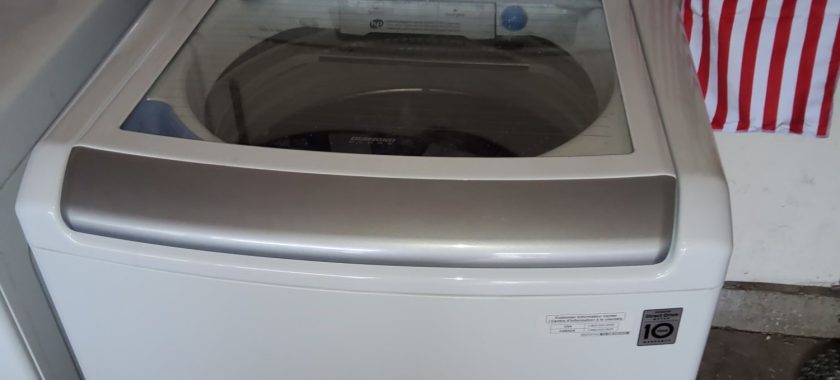Bosch washing machines are known for their reliability, efficiency, and advanced technology. However, like all appliances, they can experience issues over time. One of the most common problems that many Bosch washing machine owners face is strong vibrations during the spin cycle. This can be frustrating, noisy, and disruptive, but don’t worry—most of the time, this problem can be fixed easily with some troubleshooting. In this article, we will guide you through potential causes and solutions to resolve the strong vibration issue.
1. Check the Leveling of the Washing Machine
One of the most common causes of vibration during the spin cycle is improper leveling. If your washing machine isn’t level, it will create an imbalance during the high-speed spin cycle, leading to loud noises and vibrations. To fix this, check the four corners of the machine using a bubble level. If the machine isn’t level, adjust the feet of the washing machine by turning them clockwise or counterclockwise until it sits evenly on the floor.
2. Ensure the Floor is Stable
If your Bosch washing machine is placed on an uneven or weak floor, it can result in excessive vibration. A wooden or tiled floor might not be stable enough to support the machine during high-speed spins. Ensure that the washing machine is placed on a solid, level surface, such as a concrete floor. If you’re using a laundry room on a soft surface, such as carpet, try placing a strong, flat board under the washing machine to help distribute the weight.
3. Avoid Overloading the Washer
Overloading your Bosch washing machine can cause unbalanced spinning, which results in vibrations. When there are too many clothes in the drum, it can be difficult for the washer to evenly distribute the load during the spin cycle. This imbalance causes excessive vibration. Always follow the manufacturer’s instructions for load size. Bosch washing machines typically have a load limit that should not be exceeded, and loading the washer correctly will help avoid any issues with vibration.
4. Inspect the Shock Absorbers
Shock absorbers in your Bosch washing machine are designed to reduce the vibrations caused by the spin cycle. If these components are damaged or worn out, they won’t perform effectively, leading to excessive shaking and noise. If you notice that your washing machine vibrates heavily even when the load is balanced, it’s time to inspect the shock absorbers. Replacing these parts can restore your machine’s ability to absorb the vibrations and reduce the noise.
5. Check the Suspension Springs
Suspension springs are another critical component that helps absorb the vibrations of the washing machine. If any of the suspension springs are broken or stretched, it could cause the washing machine to shake uncontrollably during the spin cycle. You can check these springs by opening the washing machine and visually inspecting them for damage. If you find any broken or damaged springs, replacing them can significantly reduce vibrations.
6. Inspect the Drum for Foreign Objects
Sometimes, small items such as coins, hairpins, or other debris can get trapped in the drum or pump of your Bosch washing machine. These foreign objects can throw off the balance of the load, causing excessive vibrations during the spin cycle. Carefully check the drum and filter for any small items, and remove them. Be sure to check the pockets of clothing before washing to prevent this issue.
7. Verify the Motor and Drive Belt
The motor and drive belt play a key role in the function of your washing machine, particularly during the spin cycle. If either of these parts is malfunctioning, it could cause the washer to shake or vibrate excessively. If you suspect that the motor or belt might be the issue, it’s best to have a professional technician inspect and repair these parts. If the drive belt is loose or worn out, replacing it should resolve the vibration problem.
8. Balance the Load
Even if you haven’t overloaded your washing machine, certain items, like heavy towels or blankets, can create an imbalance. This occurs because heavier items are more likely to bunch together during the spin cycle, causing an uneven load distribution. To prevent this, try redistributing the items in the drum. If necessary, wash bulky items separately or use the machine’s “bulky items” or “delicate” cycle, which may be gentler on the machine and reduce vibration.
9. Verify the Suspension System
The suspension system in your Bosch washing machine is responsible for holding the drum in place while it spins. If any of the suspension rods or bearings are worn out or damaged, the machine will vibrate during the spin cycle. A malfunctioning suspension system can be difficult to fix on your own, so it’s best to contact a professional technician if you suspect this issue.
10. Call a Professional Technician
If none of these steps resolve the issue, it may be time to call in an expert. A professional technician can diagnose and repair more complex issues, such as problems with the internal components, suspension system, or the motor. If you notice persistent vibrations despite your efforts, contacting a technician ensures that your Bosch washing machine gets the attention it needs to return to full working order.
Strong vibrations during the spin cycle can be a frustrating issue, but many times, the problem can be fixed with some simple adjustments. From leveling your washing machine to checking for broken components, there are multiple steps you can take to eliminate vibrations. If you’ve tried everything and the problem persists, don’t hesitate to call a professional technician.
For help with fixing the strong vibration in your Bosch washing machine, contact Chula Vista Appliance Repair Company today. Our expert technicians are ready to restore your washing machine to peak performance!
Contact us
(619) 880-5508


